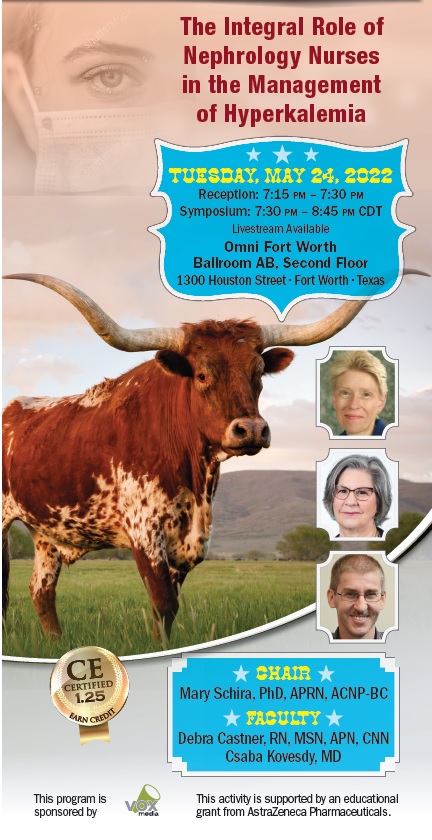 |
Registration: 7:15PM - 7:30PM Registration for this program is now closed. |
|
Program Overview:
Hyperkalemia is one of the main electrolyte disorders in patients with chronic kidney disease (CKD). The prevalence of hyperkalemia increases as the glomerular filtration rate (GFR) declines. Hyperkalemia can be acute or chronic, each requiring distinct management strategies. Although reninangiotensin- aldosterone system inhibitors (RAASi) have shown an important benefit in patients with CKD, hyperkalemia limits their use contributing to treatment withdrawal or suboptimal dosing which has been associated with increased mortality rates. In addition to those individuals with less advanced CKD, patients with end-stage renal disease (ESRD) receiving chronic hemodialysis often have persistent predialysis hyperkalemia, a potentially life-threatening condition that is associated with cardiac arrhythmias and death. Sodium polystyrene sulfonate (SPS) has been traditionally used in CKD patients; however, its efficacy has been inconsistent, and it is associated with adverse events. Furthermore, there is a lack of evidence with SPS in randomized, controlled trials in patients undergoing hemodialysis. New potassium binders have enabled patients with CKD to continue with RAASi therapy, and also helped patients with ESRD maintain predialysis serum potassium levels and prevent the need for urgent rescue therapy to reduce serum potassium. Therefore, in this program, experts in the management of hyperkalemia will 1) identify goals and strategies in managing acute and chronic hyperkalemia, 2) emphasize the importance of maintaining CKD patients on RAASi to improve clinical outcomes, 3) interpret the evidence with new potassium binders in the treatment of patients with hyperkalemia with CKD and also with ESRD undergoing hemodialysis, and 4) explain how to best use these new therapies in clinical practice. |
|
|
Educational Objectives:
Accreditation & Credit Designation:
| |

